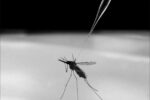DOH, DOST work to expand PH biosurveillance capacity

The Department of Health (DOH) and the University of the Philippines-Philippine Genome Center (UP-PGC), in coordination with the Department of Science and Technology (DOST), announced Friday it is closer to strengthening the country’s biosurveillance capacity with the approval of the PHP295.7 million budget needed for the expansion of the UP-PGC in Visayas and Mindanao.
Aside from detecting Covid-19 variants, genomic biosurveillance plays a big role in determining causes of outbreaks, tracking how a virus is transmitted, and complementing disease surveillance in guiding the overall public health response even beyond the Covid-19 pandemic.
The current capacity of the UP-PGC is sequencing approximately 750 samples a week, but logistical limitations pose a challenge for regions to regularly send their samples to Manila.
The availability of highly technical equipment and tools for the whole genome sequencing in Visayas and Mindanao is beneficial for the regions’ current Covid-19 response and surveillance of other diseases.
The sequencing effort takes off from the molecular biology equipment that the DOST-Philippine Council for Health Research and Development has initially put in place in PGC Visayas and Mindanao.
“We have been working with the DOH, DOST, and the UP-National Institutes of Health since the start of the Covid-19 pandemic. Our partnership with the DOH and the DOST has highlighted the importance of the country’s biosurveillance capacity in disease prevention and control. May this partnership lay down the foundations of further improving our biosurveillance capacity,” UP-PGC Executive Director Dr. Cynthia Saloma said.
“This partnership between the DOH, UP, and DOST has always helped us deliver a better Covid-19 response for our kababayan. Whole-genome sequencing is vital to our Covid-19 response and we could not have detected variants without the assistance of the UP-PGC, the UP-NIH, and DOST. We will continue to assist the UP-PGC in any way we can. Additionally, we could not have done this without the help of the DBM who is kind enough to provide us with this budget. By strengthening the country’s biosurveillance capacity, we hope to prevent future outbreaks of diseases in the Philippines,” Secretary of Health Francisco Duque III said.
As part of the biosurveillance activities for the Covid-19 response, whole-genome sequencing is vital to the Covid-19 response of the governments.
It can be used to detect the presence of new variants in the country, if the variants are causing the spikes in cases in certain areas, and if there are already local transmissions of the variants.
UP President Danilo Concepcion lauded the move, saying that UP and its research units, including the UP-Philippine Genome Center and its satellite facilities in Visayas and Mindanao, stand as a national university always at the ready to serve the interests of the Filipino people.
“This is no less than our mandate under RA 9500–that we harness the expertise and resources we have to support national development and the improvement of lives. We in the University and the PGC will do all we can to help the country win this fight against this pandemic. I thank and commend all our scientists, researchers, and healthcare workers who continue to work round the clock to track and monitor this virus and to save lives,” Concepcion said.
The work to build the country’s preparedness against the pandemic began ten years ago, with the establishment of the Philippine Genome Center in UP Diliman on July 31, 2009.
By building on cutting-edge genomic tools and by nurturing the capacity of Filipino scientists, researchers, and technical personnel, the Center has provided significant inputs to the implementation of evidence-informed strategies by the DOH and local government units.
“The DOST and UP are determined to strengthen the country’s capabilities in emerging technologies which include GNR- Genomics, Nanotechnology and Robotics which will bring about country readiness in frontier technologies. These are now being realized and we experience first-hand their benefits as in the case of PGC’s role in addressing pandemic concerns,” DOST Secretary Fortunato de la Peña said.






